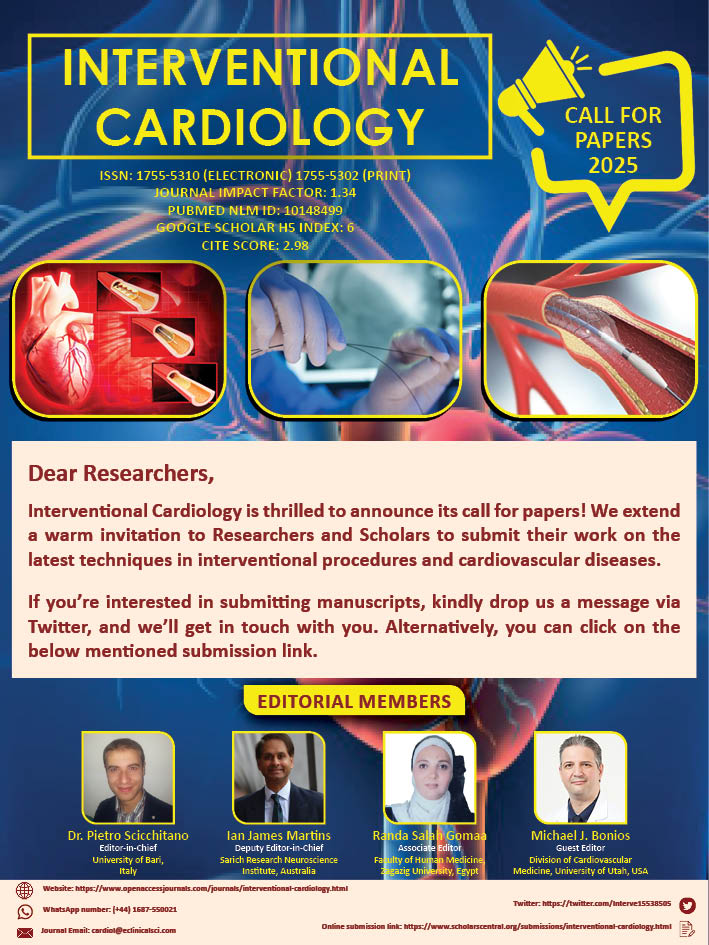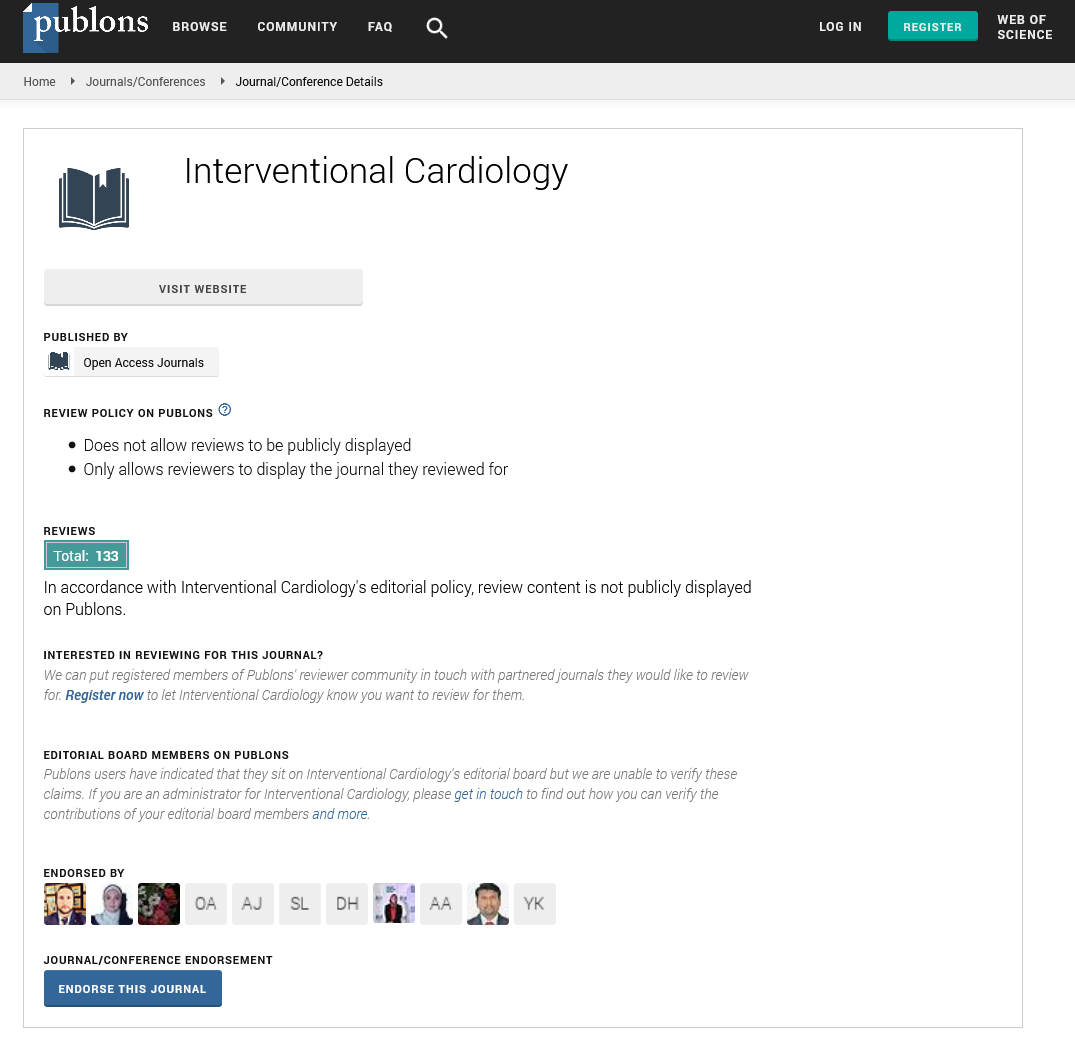Heartfelt Appreciation for Dr. Dianne M. Perez's Outstanding Contribution to Interventional Cardiology

On behalf of the editorial board, we extend our sincere gratitude and heartfelt appreciation for your invaluable contribution to Interventional Cardiology. Your recently published article entitled “The promise and problems of metabolic-based therapies for heart failure” has not only demonstrated a high standard of excellence but has also significantly enriched the field.
We are delighted to inform you that your article has been selected as the Best Article of the Year for 2021. This recognition is a testament to the exceptional quality and impact of your work. Your dedication to advancing the knowledge and practice in Interventional Cardiology has not gone unnoticed, and we believe that your research will continue to inspire and guide others in the field.
Congratulations on this well-deserved achievement! We recognize the effort, time, and expertise you have invested in your work, and we are proud to showcase it as an exemplary contribution to our journal.
Author Biography
My early publications were seminal in the alpha1-adrenergic receptor (alpha1-AR) field, starting with cloning the receptors, determining the correct nomenclature based upon pharmacology, and initially characterizing their signal transduction pathways. After the initial characterization of the alpha1-ARs, I next mapped out the ligand-binding pocket for both agonists, antagonists, and specialized ligands called imidazolines. This collection of work was very useful to the pharmaceutical industry during the 1990s and 2000s, as several drugs were synthesized based upon my structure-function studies to treat conditions such as stress urinary incontinence and benign prostatic hyperplasia. My studies were also seminal for providing insight into how these receptors are activated, by showing the specific amino acid residues involved in the activation process, and the discovery of constitutivel activity. Several of these amino acid residues have been shown subsequently to be involved in similar mechanisms in other G-protein-coupled receptors. After the structure-function studies, we created unique transgenic mouse models using large fragments of the isogenic promoters to over express wild type and constitutively active alpha1-AR subtypes in all natively expressing tissues. These mouse models are state of the art in the ability to express and characterize subtype-selective signaling and revealed novel physiology and pathophysiology never before associated with these receptors. I have now expanded my studies into drug discovery and the design and characterization of allosteric alpha1A-AR compounds that can activate the receptor and can disease-modify Alzheimer's disease.
Awards
1978, The Baush and Lomb Science Award; 1980, The Lubrizol Scholarship; 1980, The John W. Chittum Price in Organic Chemistry; 1981, The Cary R. Wagner Prize in Chemistry; 1982, The William Z. Bennett Prize in Chemistry; 1982, Phi Beta Kappa; 1991, NIH National Research Service Award (Individual); 1992, William E. Lower Basic Science Award (CCF); 1992, Finalist, Young Investigator Award (CCF); 1994-1999, National American Heart Association Peer Review; 1996-2007, Established Investigator of the AHA; 1997-2002, Mid-American Research Consortium Peer Review of the American Heart Association; 1998-, Editorial Board, Mol. Pharmacology; 2004-2011-Associate Editor, Mol. Pharmacology; 1998-2006, Editorial Board, JPET; 2000-, Editorial Board, Receptors and Signal Transduction; 2004-2007 President, Mol. Pharmacology Division of ASPET; 2005-2008 Chair, Ohio Valley & Great Rivers Affiliate, AHA research committee & Board of Directors; 2005-2007 Editorial Board, Am J Phys- Cell Physiology; 2005-08, OVA-AHA Board of Directors; 2010-current, Associate Editor-Pharmacological Reviews; 2017-Harrington-ADDF Scholar Award; 2019-20 LRI Accelerator Award, Cleveland Clinic; 2020 Outstanding Innovation Award in Therapeutics and Diagnostics (Cleveland Clinic Innovations)
THE BEST PAPER FOR THE YEAR 2021 PUBLISHED IN “INTERVENTIONAL CARDIOLOGY”
The promise and problems of metabolic-based therapies for heart failure

